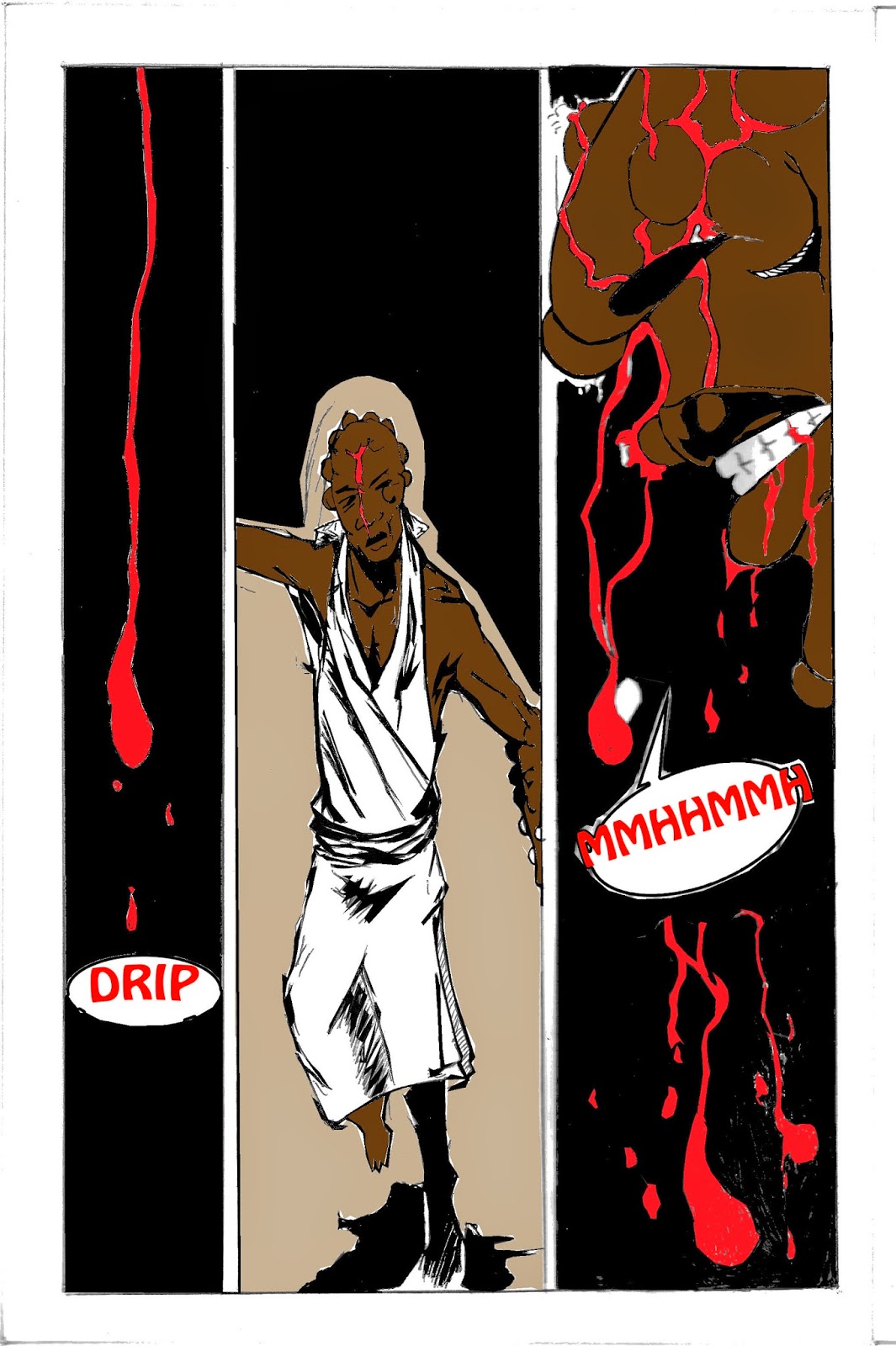An uprising is starting in the largest African country, there is a rumor of a civil WAR boiling
Following the death of the president on 5 May 2010,
the Vice became the third president(Interim) and later won the election the following year which was largely accredited as freer and fairer than all the previous elections of the 4th Republic..Until Something Tragic began To Unfold
Nigeria, Africa's most populous nation gained independence in October 1st 1963 from the British. Ever since that day, Nigeria remained an uneasy federation of distinct regions. The political class of each region used its authority to harass opponents and to pursue it own interests. At the federa level, the Northern People's Congress, led by northern region premier Ahmadu Bello and federal prime minister Abubakar Tafawa Balewa, was the leading force in a coalition with the NCNC, while the AG was excluded from power.

After openly corrupt elections in 1964, the NCNC was also excluded from national power. The gap between the rich and the poor widened, and protests mounted. In January 1966, middle-ranking members of the Nigerian military staged an attempted coup. This was suppressed by federal troops, but resulted in the installation of a military junta, led by Igbo officers. Regional animosities flared, prompting massacres of Igbo-speakers living in the north. The following year, eastern leaders responded by declaring a separate Republic of Biafra, igniting a three-year civil war. Despite intense ethnic polarization and perhaps as many as one million killed during the war, the winning federal government followed a policy of non-retribution. Subsequent division of Nigeria into smaller states produced larger representation for ethnic groups other than the big three.

Successive military governments promised to return Nigeria to civilian rule, but it was more than a decade before Lt.-Gen. Olusegun Obasanjo fulfilled this commitment. They also promised to end civilian corruption, but General Murtala Muhammad, the most energetic in the drive against corruption, was in office only for less than a year in 1975-76 before an abortive coup attempt resulted in his death. In 1979, Shehu Shagari, leader of the National Party of Nigeria (NPN), was elected president of the Second Republic. However, neither the regional tensions nor the issue of corruption had been resolved. The Shagari regime was notoriously corrupt and incompetent. On December 31, 1983, the armed forces again deposed the government. The coup, led by Gen. Muhammadu Buhari, initially enjoyed the support of many Nigerians, who had become disillusioned with the corruption of civilian officials.

When Gen. Ibrahim Babangida assumed power in 1985, the military government again promised to restore democracy. Despite initial indications of the military s commitment to this goal, hopes for a swift transition began to fade by the end of the decade. The schedule was repeatedly revised and the government made increasingly intrusive attempts to "manage" the process of political party formation.
The most urgent issue is democracy, understood not only as an end to military rule but also as the establishment of responsive political institutions which promote accountable government, prevent corruption, respect human and civil rights, and ensure popular sovereignty. For most Nigerians, the pressing problems of everyday survival are the highest immediate priority. Since the oil boom of the 1970s, Nigeria's economy has been in crisis despite continued expansion in oil production. The real income index for urban households dropped from 166 in 1980 to 71 in 1986.
The exchange rate for the naira has dropped from one to a dollar in 1985 to 79 to a dollar in 1996. And the list of dismal statistics could go on. Without the establishment of accountable government, however, the chances of addressing other pressing problems--such as the deterioration of living conditions and the collapse of once outstanding educational institutions- -are very low.
Nigeria has abundant human as well as natural resources to address its problems. Many of its outstanding leaders, however, are instead in prison or in exile. The prerequisite for addressing other problems is having a government that works and is accountable to the Nigerian people.

The electoral system imposed two political parties created by the military: the National Republican Convention (NRC) and the Social Democratic Party (SDP). Both parties chose wealthy Muslim businessmen to run for president. The NRC candidate was Bashir Tofa, from northern Nigeria; Chief Moshood Abiola, from the southwest, was the candidate for the SDP. Although both had been approved by the military, Abiola, a flamboyant media magnate and philanthropist, was seen as potentially more independent.

Nigerians eventually went to the polls on June 12, 1993 in what observers deemed one of the most peaceful and orderly elections in Africa in recent years. Abiola won 58 percent of the vote, including majorities in 22 of Nigeria's 31 states. Even in the north, he won 43 percent of the vote, carrying 4 of the 11 northern states.
Nigerian hopes for a return to civilian rule were dashed when the military regime annulled national elections after votes were counted in June 1993. Since then repression has escalated to unprecedented levels, culminating in the execution of environmental activist Ken Saro-Wiwa and his colleagues in November 1995.
Military ruler General Sani Abacha peddles another complex "transition" program, while internal protest is repeatedly quashed and the international community pays only sporadic attention. Like the anti-apartheid movement in the early 1970s, the Nigerian pro-democracy movement is faced with the challenge of building a coalition that can isolate a systematically abusive regime and promote a democratically accountable alternative.
The situations differ in many respects, most notably in the lack of a racially-defined barrier between oppressor and oppressed. Nevertheless, the movement for democracy in Nigeria has similar strengths and faces comparably formidable obstacles as did its South African counterpart twenty years ago.
























































